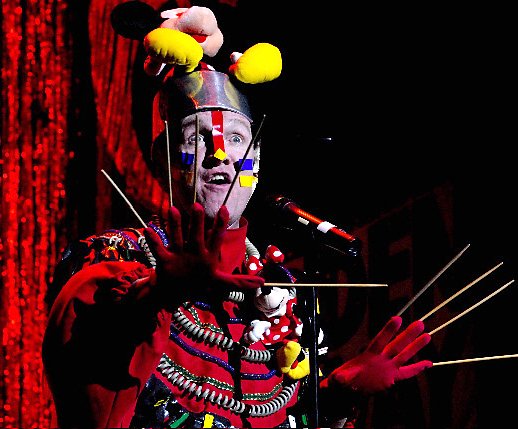For two of the executive producers of the Festival of New American Musicals, Marcia Seligson and Bob Klein, it is without a doubt the latter. This realization was one of the reasons that motivated them to create the first Festival of New American Musicals in Southern California, which made its premiere in 2008. After its great success last year, the festival’s second run will go from April through July 2009, with close to 30 events in venues that stretch from Santa Barbara to Santa Ana.
Both founders of this festival, Seligson and Klein, previously worked together in “Reprise! Broadway’s Best,” an L.A.-based theater company that produces rarely revived classic Broadway musicals.
The revival of musicals has been very successful among audiences both in Los Angeles and New York, yet Klein began to notice that new musicals such as “Wicked” and “High School Musical” were garnering a brand new audience composed of young fans that had never seen Broadway musicals before.
“(I was surprised that the theater world) was not acknowledging that something very exciting in musical theater was going on,” Klein said. “Kids all over America were singing and dancing again.”
“There was an enormous amount of creativity and innovation with these musical theater creations,” Seligson said. “They were very different from old musicals.”
With these views in place, they both left Reprise! to work on a project that would explore their conjoined convictions. This project began in 2006 and came to fruition in 2008, proving to be larger than expected with about 45 events in 35 different venues.
“The only criteria for the festival is that either it is a completely new musical or that it has never been done in L.A. before,” Seligson said.
This year’s festival features new works, works in progress, cabarets, staged readings, lectures, workshops and master classes, all with the intent of creating a new theater audience as well as extending the opportunity to people of all ages and backgrounds to get involved with the creative process of musical theater.
“This year is very exciting because we will be working with a grade school, Marquez Elementary School,” Seligson said. “There is a teacher from this school that writes new musicals for his fifth grade class as a way of teaching kids history.”
UCLA has done research and found that these kids’ retention rate is twice the average school rate, an important triumph in the festival’s educational component.
And it is not just budding fifth graders that are getting the chance to shine: College students are also showcasing their talents.
UCLA students were part of the festival’s first preview event with the production of “The Wild Party,” which ran March 12 and 13 of this year. This show was put on by another recent addition to the theater community, Act III Theatre Ensemble.
The motivation behind the creation of this ensemble is very similar to one of the festival’s purposes: to get people of all backgrounds involved. First-year musical theater student, Hunter Bird, is the founder and artistic director of this ensemble and was co-director of the show. Bird created this company with the intent of allowing students of all majors to partake in theater.
“There’s no “˜You have to do this’ or “˜You have to do that.’ If you want to come audition, you come audition,” Bird said. “We wanted to have an outlet to do high quality theater on campus.”
The success of “The Wild Party” was representative of the festival’s aims.
“”˜The Wild Party’ is a very ambitious show. It set the bar high for Act III. But people kept coming up to me after the show and talking about how incredibly motivated the cast was,” Bird said. “I hoped the show would get people excited about Act III and the festival.”
It is this excitement, which resonated within the show and the festival, that will hopefully help create a theater audience in this generation.
“If you create opportunities to see shows now in college, it is going to be more likely that young people will attend shows later on in life,” Bird said.
The festival is successfully reaching every possible facet because of its appropriate timing and the contribuors’ passion to excite a new group of theater-goers.
“We are fortunate to ride the wave, and we are riding it for all it is worth,” Klein said. “We love musical theater and we want to share it with the world.”
